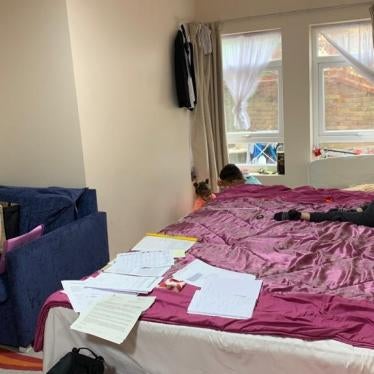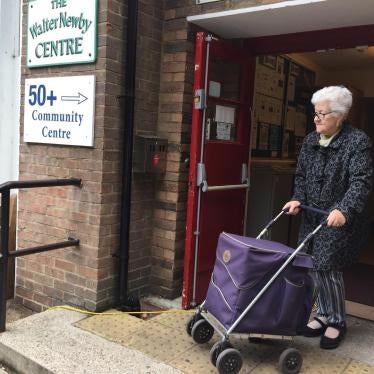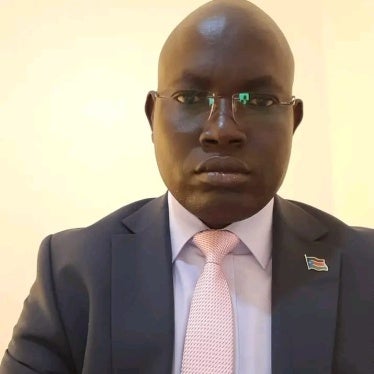“Who has AIDS, who has AIDS? Is it you?”
That’s what a police officer shouted to an outreach worker during a stop-and-search I witnessed in downtown Athens, in May 2014. It was my first night out with a team of outreach workers from Athens Checkpoint, an HIV-prevention group that distributes condoms, as I began research on police abuse in downtown Athens.
Over the last few years, Athens has struggled with an increasing number of people who have lost their jobs, been evicted from their homes, and affected by poverty and social exclusion. Some live on the streets and others go there to find drugs or to find clients for sex work. As austerity measures have been carried out, HIV, suicide, and depression have increased and hundreds of thousands of people have been locked out of the health system altogether. But harassing outreach workers and people living on the streets is hardly the answer to these problems.
Different police officers stopped us twice within 10 minutes. During the second stop-and-search, the police found an antiretroviral pill among the belongings of an outreach worker. One of the police officers reeled back and shouted on the street, outing the worker.
As I interviewed people in the center of Athens, I found that police used identity checks as a tool to harass people they consider undesirable. They target the homeless, people who use drugs, and sex workers as they walk down the street, wait for a bus, or visit a day center where they can eat, clean up, or get support. The police would then detain people they stop for long periods allegedly to verify their identity. The people I interviewed said they felt targeted because of the way they looked, not anything they had done.
Between last May and September, I spoke to dozens of people. They described being held in the street, in police buses, or in police stations – sometimes far from the city center -- for hours, keeping them from getting medical care, and other services they need. When I went back in April, after a new government took office, and talked with outreach workers and six people from the same groups little seemed to have changed.
That first night out, police officers took our IDs, detained us and took us to the Acropolis police station to verify our identity. As I sat in the waiting room, chatting with duty officer -- who was not involved in the stop, the two outreach workers were taken to a different room and strip-searched, to see if they were hiding drugs, one of them told me afterward. We were released an hour later, after the officers’ direct supervisor apologized for the incident and acknowledged the lack of awareness about HIV among the police.
Something similar happened to Anastassis, a 45-year-old former army officer who has injected heroin for the last 11 years to cope with his job loss and living on the street. “They looked at my behind,” he said, describing his humiliation when eight officers stopped him on the street. “They told me to open it and they looked with a flashlight. I had to bend over. And they were laughing.” The officers beat him when he objected.
I heard many other disturbing accounts of physical abuse and harassment by the police.
What these police officers are doing is discriminatory and unlawful. Police officers have a duty to respect and protect people from cruel, inhuman, and degrading treatment or punishment.
The government of Alexis Tsipras, elected in January, has pledged to take a different approach to policing in the center of Athens. The Greek authorities should tightly circumscribe police stop-and-search powers and adopt clear and binding guidelines for law enforcement officers, including the permissible grounds for conducting a check and for taking a person to a police station for further verification of their documents.
Police officers conducting stops need appropriate training, equipment, and guidance on how to conduct identity checks without violating people’s rights. Finally, the Greek government should ensure diligent investigations of allegations about police abuse and hold anyone found responsible to account.
To make a real difference, the new government should change problematic laws and practices that make already difficult lives on the streets of Athens that much harder.








